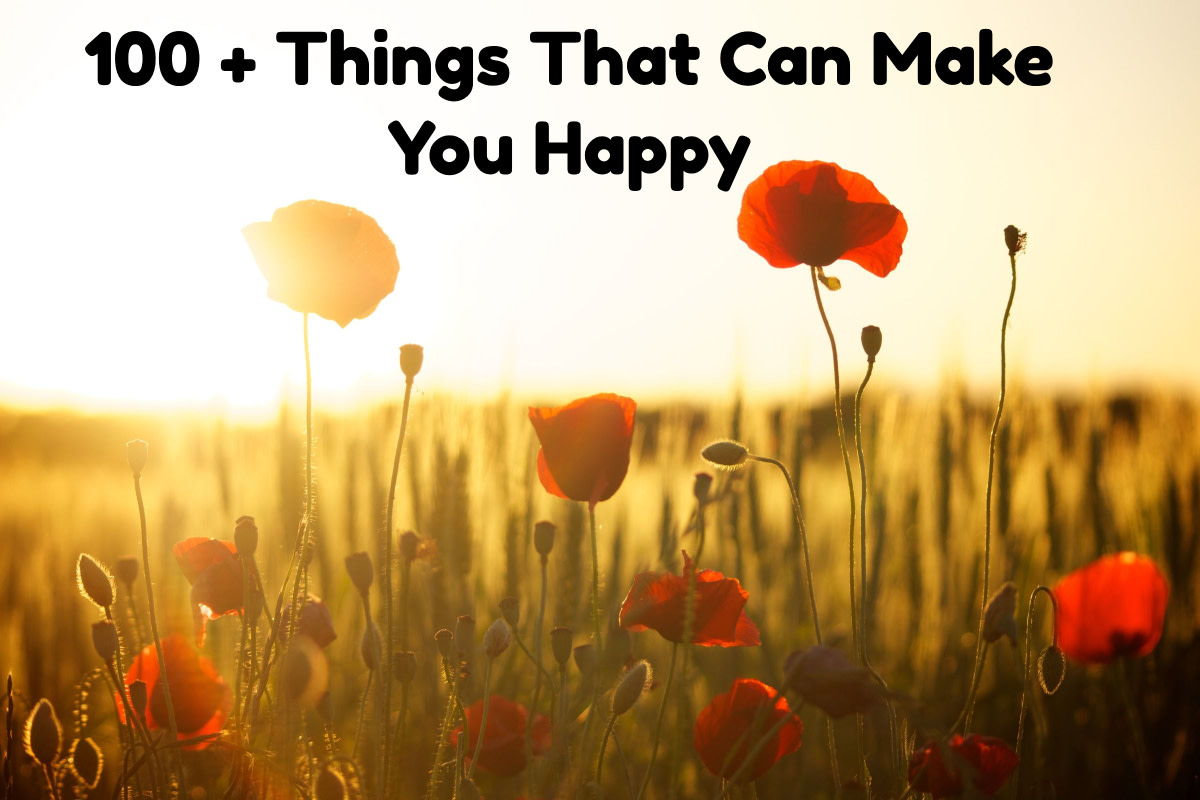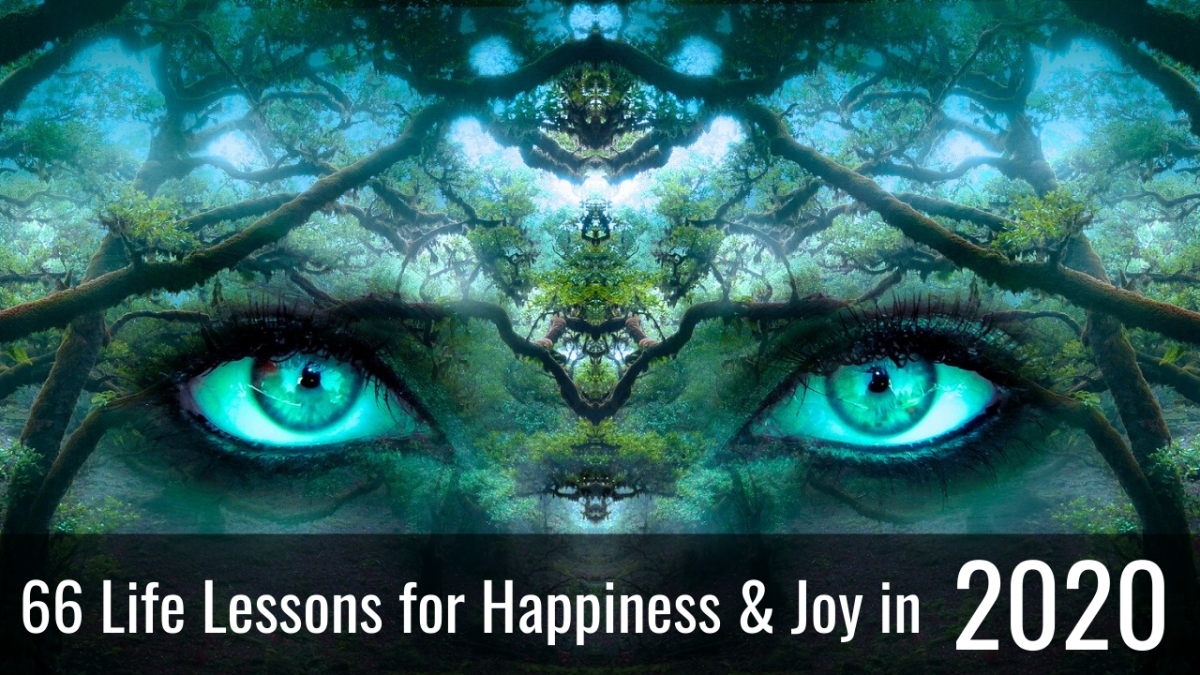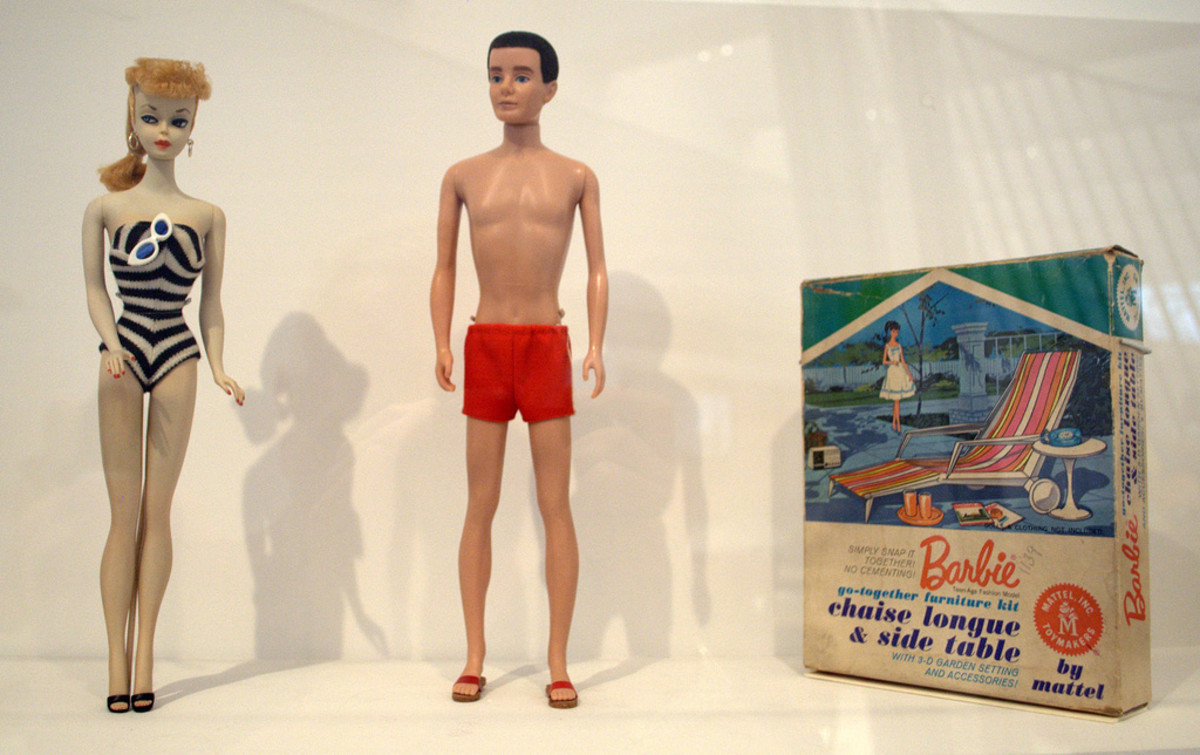- HubPages»
- Health»
- Quality of Life & Wellness»
- Personal Development
15 Lessons To A Happy Life

Everyone Wants To Be Happy
Everyone in this world wants to live a happy life. To be really happy is not just having plenty of money, although money may be a contributing factor if used wisely. Some fortunate beings are just naturally happy by nature. It is their inborn quality. Such are the blessed mortals. But the majority of humans are not happy with their lives. Some have genuine reasons that make their lives unhappy. Conditions beyond their control have prevented them from being happy. These are unfortunate conditions like wars, natural disasters, and problems created by others that directly affect them.
Be that as it may, for most people, there are fortunately some controllable factors that can alleviate some miseries out of their lives. If these factors are properly followed, there is great assurance that people will be happy. These factors are real lessons in life, proven to bring happiness to those who diligently live by them.
Here I share with you the 15 lessons to a happy life. The first 12 lessons are taken from an article about a caretaker in India who manages a “special” guesthouse where guests check in “to die in peace”. His name is Bhairav Nath Shukla and he is the Manager of Mukti Bhawan “Guesthouse” where the rich and poor check in to wait for their final call. From his observation and reminiscent conversation with his “guests” throughout his 44 years of service, after witnessing 12,000 deaths, Mr. Shukla shared with us these 12 recurring life lessons which if we can learn from them and put into practice, will help us live a happy life. The link article of Mr Shukla is provided at the end of this article.
The final 3 lessons; lessons 13, 14 and 15 are bonus lessons for you. Lessons 13 and 14 are essential ingredients to maintain a healthy physical body. I personally added these two lessons as I regard them as definite common-sense prerequisites for a happy life but often so carelessly disregarded. Without a healthy physical body, how can a person be happy? The final lesson 15 is the master-key to open the door to a happy life.
Now let us begin our journey to a happy life!
The First 12 Lessons That We Must Follow To Be Happy
Lesson 1 : Resolve all conflicts as soon as possible.
Life is not without having conflicts, but the ability to resolve them as soon as possible. Otherwise the conflicts will eat into one’s life. Shukla told the story of a “guest” who requested for his brother to meet him before he died. When the brother arrived, he asked for forgiveness and pleaded that the wall built to separate their two houses be removed to resolve past differences. The two brothers cried and embraced each other. Moments later, this “guest” passed away peacefully.
Lesson 2 : Live a simple life.
Shukla observed that his guests in their final days tended to eat simple meals. This was perhaps the only avenue left for them to practise what was left of them to live a simpler life. He concluded that these people’s greatest regret was that they should have lived a simpler life rather than be burdened with the unnecessary troubles of life. One of the greatest follies in life is to desire for more and more. In the end they accumulated more burden and problems to their deathbeds. The axiom “less is more” is the secret to have abundance with contentment.
Lesson 3 : Enjoy the beauty in simple things.
To be happy living a simple life, one needs to see and appreciate the beauty in the simple things in life. Usually people are too proud or critical to appreciate the simple things in life. They are blinded by the bright lights and preoccupied with complicated events and things that the little happy things in life pass them by, until it is too late to realize.
Lesson 4 : Filter out what is negative.
In life, we must cultivate the skill of filtering out the bad and negatives from the good and positives. Shukla maintained that each person has different shades of good and bad. It is up to us to focus on the good qualities of each person, and not to harbour on the person’s negative traits. Why carry people’s rubbish in our mind, and let it burden us? Do not judge and dismiss people outright. Instead, cherish on their good qualities which will make us happy, and this will eventually overshadow their liabilities. In this way, our relationship with people will always be happy.
Lesson 5 : Be humble and be willing to seek help from others.
One’s greatest enemy actually lies deep inside the person. Our big ego is the main cause for many of our problems. Our arrogance and pride prevent us from opening our hearts and minds to accommodate other people’s views. We do not have the faculty and wisdom to embrace others because of our very big ego. There are always people who know more than us in certain subjects, while we may be more knowledgeable in other areas. We must always be willing to share and help others, while be humble enough to seek help from others. This is the blueprint to be happy.
Lesson 6 : Acceptance is liberation.
Most people are aware of their problems. Problems create stress, leading to distress if not resolved. People ignorantly confront and react to their problems in the wrong way. Inability to resolve their problems will lead to denial, blame, anxiety, fear, anger and ultimately extreme stress. This negative emotional build-up will inevitably cause unhappiness and misery. Shukla believed that one must be able to accept one’s problems and deal with them rationally. There is also a further step towards acceptance of problems that one cannot control or resolve, and that is, to let go. Acceptance will liberate the person to dissolve problems or ultimately to just let them go, where no answer can be found.
Lesson 7 : Accepting everyone equally.
Shukla could maintain his job with ease for the past 44 years because he treated all his “guests” equally. Irrespective of their status and background, to Shukla they were there for one final purpose. That made his job less complicating, and his life easier.
Lesson 8 : Put action into your purpose.
Having a purpose in life and not acting on it, is worse than not having a purpose at all. This is because if we have no purpose, we have no issue. But if we have a purpose in life, we will feel a sense of loss and unhappiness when our purpose is not realized. So Shukla insisted that to be happy, we must take action to realize our purpose in life.
Lesson 9 : Cultivate good values.
Shukla recommended that we must consistently cultivate good values of truthfulness, kindness and compassion. Only having good values in life will ensure happiness in life.
Lesson 10 : Concentrate on learning things that make you happy.
Shikla advised us to choose those things that we are happy to learn, and not to waste our time learning things that we are not interested in. We must delve deeply into what rejoices our heart and mind. When the final days approach, we can sing in our hearts even when we cannot speak anymore. In my case, I like writing and participate in community work. I enjoy my time writing here. Participating in community activities with a genuine heart bring out the best in people. When I serve others without conditions or expecting anything in return, I experience the pure joy in my heart. This is one happiness that money cannot buy.
Lesson 11 : Don’t burn bridges.
Burning bridges means we no longer can cross the river. We are short-changing ourselves. It is inevitable that we will “cross swords” with people we meet in our life. Shukla explained that we should not take issue on the person but only on the mismatched ideologies. In this way, we unburden ourselves from being bitter, resentful or angry.
Lesson 12 : Charity is our duty in life.
Shukla did not define doing charity as something religious or spiritual. Instead, he maintained that it is the duty of each person to do good and feel responsible for it. Giving a certain amount of what we have, will benefit both the giver and the receiver. Shukla revealed that those who experienced blessings and gratitude from others exit gracefully and peacefully in their final days.
The Most Important Prerequisite To Be Happy
Have you been to a hospital? You know how it is to be sick? And if the person is critically sick, the misery is just unbearable. I know this very well because my adopted son has ended in the hospital ICU, not once, not twice but three times! The miseries and pain he went through were indescribable and unimaginable! Good fortune was with him. He survived!
Can one be happy if one is sick? Definitely not. The prerequisite to be happy is to maintain a healthy physical body. There is no other way. So here are bonus lessons 13 and 14 for you. To be happy, stay active and healthy!
Lesson 13 : Healthy nutritious diet.
We need not have to be expert nutritionists to discern what the nutritious foods are. I will not dwell into details of nutrition. Generally, we should reduce taking oily stuff, red meats and processed foods. Increase intake of fresh fruits, nuts and vegetables. Smoking is detrimental to health too. Remember, you are what you eat! As for me, I have gradually reduce my meat intake, and within 2 years I shall be a full vegetarian.
Lesson 14 : Exercise to maintain optimal physical form.
Our physical body needs regular exercises to maintain optimal functions. It is like a machine. Once we are lethargic, our body system weakens and will be prone to sickness. I have throughout the years, made effort to maintain a regular exercise regime, practising various types of exercises at different periods of my life. I have practised 7 types of qigong exercises, yoga, and even gym workout, the latter of which still left behind positive sign of firm arm muscles even at my present age. I am 66 years old this year, 2016!
Finally, The Master-key To Happiness
Lesson15 : The Master-key to happiness.
This final lesson provides the master-key for you to open the door to happiness. This lesson is based on the results of perhaps the longest documented study on adult development conducted by Harvard University over a span of 75 years.
“What keeps us happy and healthy as we go through life?” asked psychiatrist Robert Waldinger. The answer is at “6.10” of the video below, "What makes a good life?".
What is the secret to a happy life? The answer is the ability to generate and maintain good relationships with others. Good relationships mean the ability to generate and maintain cordial social commitments with family members, friends and the community at large. Good relationships keep us happier, healthier, and help us live longer.
Without good relationships with others, we are alienating ourselves from others, preventing our own happiness to surface. The terrible consequence of this self-inposed social alienation is the feeling of loneliness. Loneliness is self-inflicting and toxic. Loneliness causes unhappiness and ultimately may kill the victim. I know of a very learned and respected retired judge who committed suicide because of loneliness! This sorry state of affair is more often not by conscious choice but our inability to learn the art of socializing. Why is it that most people cannot achieve this seemingly simple social skill? The answer is at “10.00” of the same video below.
Most of us cannot achieve this social skill simply because we are humans. We want a quick fix. Building good relationships takes time, respect and patience. It involves the will to yield and accommodate even if we are right. Building good relationships is a continuous and tedious lifelong process. The reward is a long life of happiness.
My Life And Happiness
I like writing because I get to share my thoughts in my own pace. Unlike talking, writing can take its own pace. I write in stages and for this article it is no difference. As a parting shot, may I share my thoughts on this most elusive feeling of “being happy”.
If you are by nature friendly and sociable, then half the battle is already won. But if you are like me, not quite good on social skills, don’t despair as it can be learned and cultivated. As I wrote in the beginning, sometimes unfortunate events prevent us from being happy. For example the passing away of our loved ones cannot give reason for us to be happy. If we are happy over this, then we must be crazy!
Be that as it may, under normal circumstances we have no good reason to be miserable. My life has been tainted with lots of events that make happiness very elusive. Being human, I also succumb to bouts of self-pity, unhappiness and depression. The difference is that I do not allow these toxic feelings to poison my life. To overcome these depressive feelings, I practise most of the lessons discussed above. One of the most powerful lessons is lesson 6 which requires us to accept situations and events that we cannot control. Once we accept and let go of things that we cannot control, we are free! By acceptance and even letting go, do not mean that we do not care anymore, but we step outside the box-trap and can still remain watchful from outside.
Most of the miseries are caused by our own foolish reactions over the events of life. Our inability to respond appropriately to situations is the main cause of our unhappiness. We need to change our mindset from negativity to positivity, from complaint to compliance, from resistance to acceptance, and from resentment to compassion. The best platform to start changing our negative attitudes is to join some social groups which practise such good values. It is easier to progress if we receive guidance and encouragement from like-minded people. I have joined such a group to nurture my happiness!
So remember, to be happy, start building good relationships with people.
This is the link to the article on Mr Shukla :"12 Life Lessons from a Man Who’s Seen 12000 Deaths"









